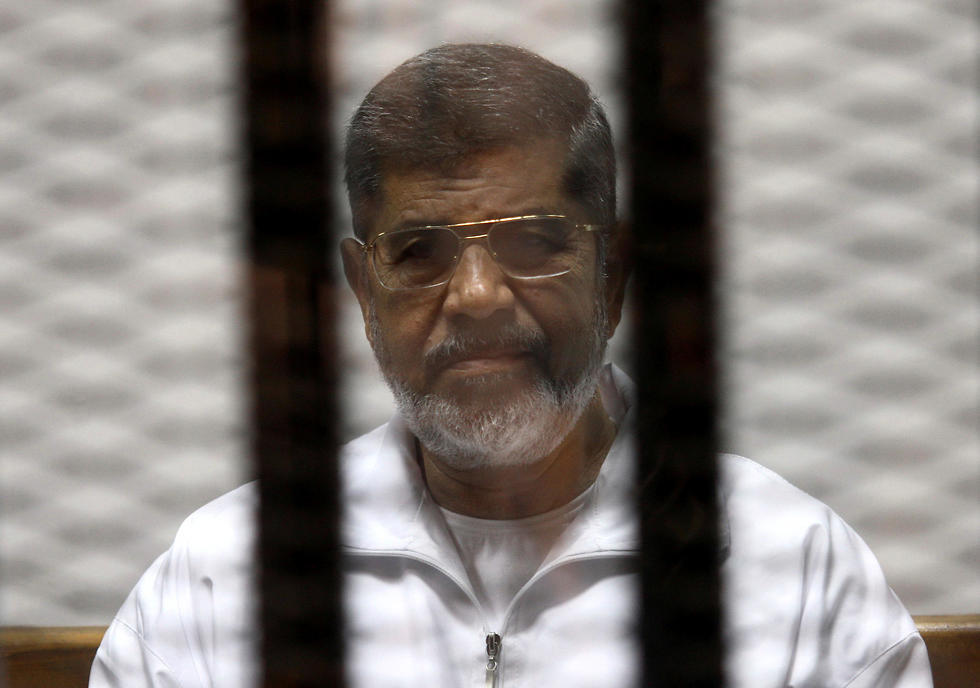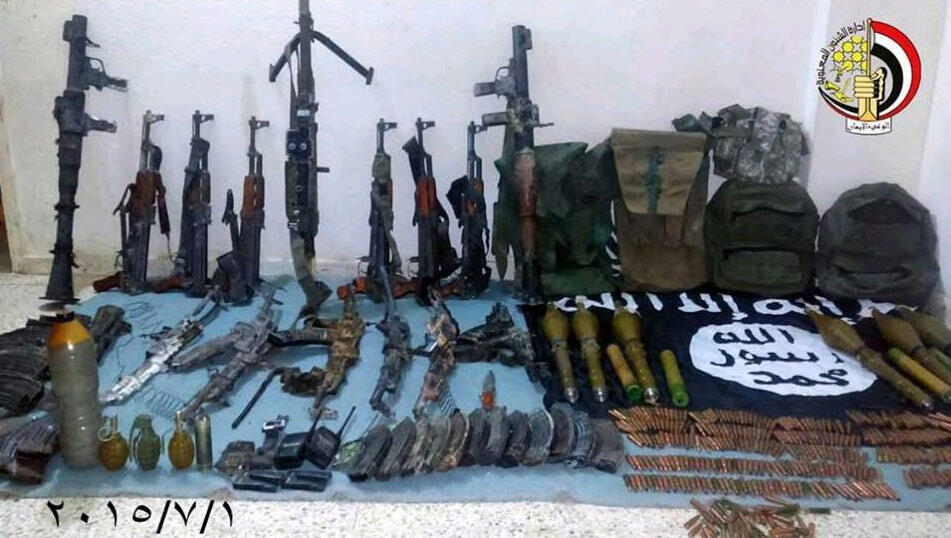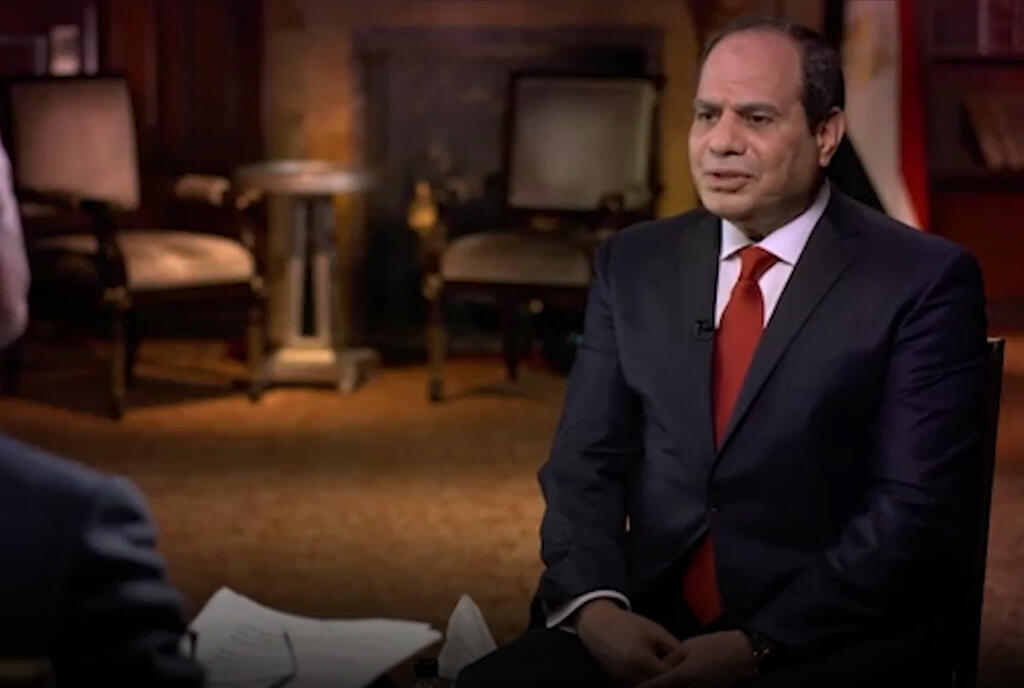Getting your Trinity Audio player ready...
The clash between Cairo and Addis Ababa over the waters of the Blue Nile could have an unexpected impact on Israel's security in the South at the border of the Sinai Peninsula. Burgeoning tensions, far removed from its borders, may have serious security ramifications for Israel, much closer to home.
4 View gallery


Egyptian president and former Ethiopian prime minister
(Photo: Reuters, The Egyptian Presidency)
Egypt’s endless struggle for Nile water
For four decades, beginning with Egyptian President Anwar Sadat in 1969, Egypt declared, “The only matter that could take Egypt to war again is water.” In 1988, then-Egyptian Foreign Minister Boutros Boutros-Ghali warned that the next war in the Middle East would be fought, not over politics, but over the waters of the Nile.
Ethiopia’s decision to build a dam without Egyptian consultation
The long-simmering conflict over the waters of the Nile between Egypt and Ethiopia intensified in 2011 with Ethiopia’s decision to begin construction of the Great Ethiopian Renaissance Dam (GERD)– which when completed, is set to become Africa’s largest dam and the continent’s largest hydroelectric power plant. In February 2022, the operation of the first of the dam’s 13 electricity turbines was initiated without consultation with any other Nile nations.
Egypt considers military response to Ethiopian dam
The Egyptians, already afflicted by a grave lack of water, view with great trepidation the completion of a project that may potentially impede the flow of the Nile into their country. Egypt wants Ethiopia to promise to release certain amounts of water to top up the Nile. But Ethiopia is loath to ‘owe’ water to downstream countries or to drain the reservoir so much that electric output suffers.
Even though Mohamed Morsi, the Egyptian leader of its short-lived Islamist regime (2012-13), was generally less menacing towards Addis Abba than others before him with regards to the building of the dam without consultation, he too warned Ethiopia that “all options are open,” a reference to a possible airstrike, guerrilla sabotage, or destabilization of the Ethiopian government.
Egypt faces insurgency since 2011 at the Sinai Border with Israel
At almost the same time as the construction of the GERD began, an insurgency began to emerge about 2000 km to the north, in the Sinai Peninsula that abuts Israel’s long southern border which precipitated increasingly grave security hazards for both Cairo and Jerusalem. This uprising initially involved Bedouin tribesmen, coinciding with the overthrow of President Mubarak in 2011. Some of the insurgents harbored long-standing grievances against the central government in Cairo—but the rebellion later also attracted radical Jihadist elements from countries such as Syria, Iraq, and Libya. The Egyptian military engaged with the insurgents—launching two operations under the Morsi regime in 2012 and 2013 to quash the violence but in 2013, following an abduction of Egyptian officers, violence surged again.
Increasing violence has spilled into Israel
After Morsi was ousted, violence increased. The Egyptian forces responded forcefully—including against civilians, with measures that involved the demolition of houses and evacuation of residents to create anti-smuggling buffer zones. Numerous civilians were also abducted and butchered by the Jihadi insurgents. The military action raged on for over a decade involving incidents of appalling violence. One of the goriest attacks, in November 2017, involved the slaughter of over 300 Sufi worshipers—including almost 30 children—in an El Arish Mosque in Northern Sinai.
At times the terror attacks erupted beyond the Sinai itself. There were several lethal cross-border attacks against Israel that inflicted numerous casualties — including fatalities both on soldiers and civilians. In 2015, a Russian airliner was brought down, reportedly by Sinai-based terror groups, resulting in over 220 deaths.
President Sisi proclaims victory in the Sinai after mass casualties
After over a decade of strenuous and sustained military effort, in January 2023 President Sisi declared victory over the insurgents, proclaiming that “we have defeated terrorism“ in a conflict that has involved around 15 Islamist organizations and reportedly left almost 3,500 Egyptian security personnel dead and nearly 12,500 wounded, with up to 5,000 insurgents killed. For Egypt to subdue the insurgency required employing considerable military resources over a protracted period, beyond the level that Egypt was permitted to deploy in Sinai by the 1977 Camp David Agreements.
Dam-related operations with Ethiopia may leave the Israel-Sinai border exposed
The Egyptian military budget of reportedly $9.4 billion dwarfs that of Addis Ababa at well under one billion dollars ($888,099,450). But escalation over the GERD dam would mean Egypt drawing their military budget away from the Sinai Peninsula, inevitably giving greater rein to anti-regime — and anti-Israel —radicals who remain there and who have launched attacks against Israel and smuggled arms into Hamas-controlled Gaza.
Egypt is seeking military bases closer to Ethiopia to cut costs
Because a GERD-related operation would involve projecting military force over considerable distances, Cairo is reportedly actively searching for military bases in countries bordering Ethiopia—such as Eritrea, South Sudan, Somaliland, and Djibouti. One closer route for Egypt would be via Sudan, which has a more ambivalent attitude toward the dam, as it is likely to reap several benefits from the project—including enhanced flood control and increased electricity supplies.
 Dr. Martin Sherman
Dr. Martin ShermanAccordingly, if Egypt concentrates on a GERD-related operation, Israel must be on the alert for a potential scenario along its long southern border and the vulnerable transport routes connecting the center of the country with the Red Sea port of Eilat—and of course, the Sinai-Gaza border— that are subject to mounting fundamentalist threats from unfettered warlords in an increasingly lawless Sinai Peninsula.
- Dr. Martin Sherman served for 7 years in operational capacities in the Israeli Defense establishment. He is the director of the Israel Institute for Strategic Studies, a member of the Israel Defense & Security Forum (Habithonistim) research team & a participant in the Israel Victory Project.




